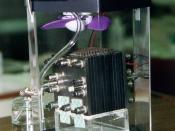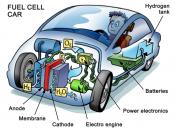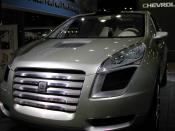Introduction
- What is our paper about?
This paper is to contrast the pro's and con's of including alternative fuel vehicles into a fleet of rental vehicles.
What are alternative fuels?
Alternative fuels are different fuels compared to what we use today as our most common types of fuels. The most common fuels of today are diesel and gasoline. In the past decade, there has been a climbing trend of electric vehicles and research on other types of combustible fuels. All of which, together, are in the minority of fuel consuming vehicles. (As a quick guess, I feel ALL alternative fuel vehicles are 1 to 2% of ALL fuel consuming vehicles. Not man powered like a bicycle. We need to back this up and I will try to find something.)
I cannot find anything to back this up. These alternative fuels include electricity, ethanol, methanol, natural gas (methane), Liquefied Petroleum Gas, hydrogen, propane and reformulated and oxygenated gasoline.
Pro's & Cons for fuels
Pro's we are looking for cleaner exhaust or less by-products being emitted from all of the alternative fuels above compared to our immediate types. Our market will depend on ease of obtaining the fuel and distance the consumer will travel.
"GM's all-electric two-seat Impact could debut by 1993. The concept electric car uses 32 auto batteries that require eight to 10 hours to recharge and has an estimated driving range of 130 miles between recharges. The fastest electric car now reaches 65 miles per hour, and batteries need replacement every 25,000 miles. On the positive side, operation is very quiet and emissions are near zero." (Moskal, 1991) "In 1995, the Impact (now called the EV1) hit the streets - the first modern EV built from the ground up." (SCE, 1990)
Con's toward alternative fuels, our infrastructure of...


